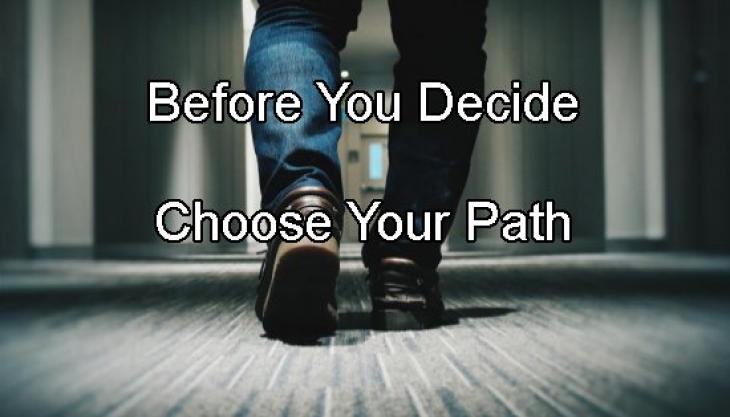Greensboro Debt Info: What Is the Difference Between Secured and Unsecured?
Submitted by Rachel R on Wed, 06/21/2017 - 10:52am

Get the facts before you choose a path for your Greensboro debt
Image Source: StockSnap.io
If you’re in debt in Greensboro and looking for a way out, bankruptcy might be a good solution. For most consumers, the options are Chapter 7 and Chapter 13 bankruptcy. Each Greensboro bankruptcy option works differently, and each comes with unique advantages and benefits. Not everyone will qualify for both, and it’s important to understand how unsecured and secured debt are affected differently by each plan.
What Is Secured Debt?
Secured debt is debt that is secured by collateral. If you have a car loan, the vehicle is the asset that secured the debt. With a mortgage, it’s your home that secures the debt. This is also true with a second mortgage, although seconds and HELOCs (home equity line of credit) may fall under the category of secured and unsecured simultaneously. A lien on the asset is part of the debt arrangement, and it’s established that way to protect the lender’s interest in the asset.
What Is Unsecured Debt?
Unsecured debt is debt that is not secured by an asset. For instance, credit card debt is unsecured. Medical debt is also unsecured. Student loans are unsecured debt, but federal student loans and some private student loans are treated differently in bankruptcy than other types of unsecured debt. Signature loans are unsecured, as are loans from friends or families. If there is no asset with a lien attaching the asset to the debt to secure it, it’s unsecured. Income taxes are unsecured debt, but certain factors determine how this debt is treated in your Greensboro bankruptcy.
Not All Secured Debt Is the Same
In Chapter 7 bankruptcy, most unsecured debt can be discharged within just a few months. If you choose Chapter 7 for your Greensboro bankruptcy, credit cards, medical bills, signature and most personal loans can be discharged and you won’t have to pay back any of the balances due. If you had a lingering balance for a repossessed auto or foreclosed home, those should be discharged. Delinquent utility balances should also be eligible.
HOA fines and fees assessed prior to your bankruptcy date should also fall under your Chapter 7 discharge. For income taxes, if the debt is more than two years old and the returns were filed on time, they may be discharged. With federal student loans, you have to show undue hardship to have the debt discharged in Chapter 7. The court may offer more latitude in discharging private student loans.
Special Consideration for Second Mortgages and HELOC
Second mortgages and HELOCs may fall into a gray area between secure and unsecured debt for your Greensboro bankruptcy. Why? What matters is the equity in your home. For a debt to be secured, there has to be value in the underlying asset. For instance, if your home is worth $200k and you owe $180k on your mortgage, you have $20k in equity. The entire $180k of your primary mortgage is secured by the $200k value of your home.
Then, if you have a $40k home equity line of credit or second mortgage, that will be weighed against your equity to determine if it’s secured or unsecured. The $20k in equity applies to the $40k HELOC or second. That means $20k of the debt is secured by equity and $20k is unsecured. ($200k home value - $180k first mortgage = $20k excess equity - $40k HELOC/second = -$20k in unsecured debt). If you filed Chapter 13 Greensboro bankruptcy, you might be able to strip off $20k on the HELOC/second, so you only owe $20k.
Secured vs. Unsecured and Chapter 7 vs. Chapter 13
If you’re delinquent on your secured debt, such as your auto or home loan, Chapter 7 bankruptcy may not be a fit solution because you could delay foreclosure and repossession. If you’re behind in unsecured debt and choose Chapter 13, you’ll be put on a repayment plan that allows you time to catch up on past-due balances. In Chapter 7, most of your unsecured debt (with some limitations) are discharged but for those behind on secured debt, it might be less advantageous than other options.
Because everyone’s circumstances are different, it’s best to meet with a reputable Greensboro bankruptcy attorney to discuss your circumstances and learn about the benefits of Chapter 7 and 13 and which may be better for you. Contact the Law Offices of John T. Orcutt today. Call +1-833-627-0115 now for a free Greensboro bankruptcy consultation at one of our locations in Raleigh, Durham, Fayetteville, Wilson, Greensboro or Wilmington.
Debts Hurt! Got debt? Need help? Get started below!
Serving All of North Carolina
- Bankruptcy Attorneys Raleigh NC (North)
- Bankruptcy Attorney Fayetteville NC
- Bankruptcy Attorney Durham NC
- Bankruptcy Attorneys Wilson NC
- Bankruptcy Attorneys Greensboro NC
- Bankruptcy Attorneys Southport NC
- Bankruptcy Attorneys Wilmington NC
Bankruptcy Attorneys Raleigh NC (North)
6616 Six Forks Rd #203 Raleigh, NC 27615 North Carolina
Tel: (919) 847-9750

Bankruptcy Attorney Fayetteville NC
2711 Breezewood Ave Fayetteville, NC 28303 North Carolina
Tel: (910) 323-2972

Bankruptcy Attorney Durham NC
1738 Hillandale Rd Suite D Durham, NC 27705 North Carolina
Tel: (919) 286-1695


Bankruptcy Attorneys Greensboro NC
2100 W Cornwallis Dr. STE O Greensboro, NC 27408 North Carolina
Tel: (336) 542-5993

Bankruptcy Attorneys Southport NC
116 N Howe St. Suite A Southport, NC 28461 North Carolina
Tel: (910) 218-8682

Bankruptcy Attorneys Wilmington NC
116 N. Howe Street, Suite A Southport, NC 28461 North Carolina
Tel: (910) 447-2987
